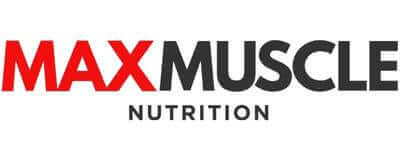Hey fitness enthusiast,
Muscle recovery is an essential component of any fitness regimen, crucial for enhancing performance, preventing injuries, and ensuring continuous improvement. Understanding the science behind muscle recovery can empower athletes and fitness enthusiasts to optimize their routines and maximize gains. This comprehensive guide delves into the physiological processes involved in muscle recovery, offering evidence-based strategies to improve recovery times and enhance overall fitness outcomes.
Understanding Muscle Recovery
Muscle recovery involves the repair, strengthening, and growth of muscle tissue following exercise-induced damage. When muscles are subjected to stress, especially during resistance training or high-intensity workouts, microscopic tears occur within the muscle fibers. The body's natural response to this damage initiates a series of biological processes aimed at repairing and reinforcing the muscle, making it stronger and more resilient.
The Role of Protein Synthesis
Protein synthesis is the cornerstone of muscle recovery, where the body rebuilds damaged muscle fibers by fusing muscle cells to form new protein strands. This process is fueled by amino acids, the building blocks of protein, necessitating adequate protein intake for optimal recovery and growth.
Key Strategies for Enhancing Muscle Recovery
1. Optimal Nutrition
- Protein Intake: Consuming sufficient amounts of high-quality protein is vital for supporting protein synthesis. Aim for at least 20-30 grams of protein per meal, spread evenly throughout the day.
- Carbohydrates: Carbs help replenish glycogen stores, the primary energy source for muscles, which can be depleted after intense workouts.
- Hydration: Adequate water intake is essential for all physiological processes, including nutrient transport and muscle repair.
2. Post-Workout Nutrition
Consuming a combination of protein and carbohydrates within 30-60 minutes after exercise can significantly enhance the muscle recovery process by providing the necessary nutrients to jumpstart protein synthesis and glycogen replenishment.
3. Adequate Sleep
Sleep is a critical component of the recovery process, with most repair and growth occurring during deep sleep stages. Aim for 7-9 hours of quality sleep per night to support optimal recovery.
4. Active Recovery
Engaging in low-intensity activities on rest days, such as walking, yoga, or light cycling, can improve circulation, facilitating nutrient delivery and waste removal from the muscles.
5. Proper Rest and Periodization
Incorporating rest days into your training schedule allows muscles time to repair and grow. Additionally, periodizing your training, varying the intensity and volume, can prevent overtraining and promote continuous improvement.
6. Supplementation
Certain supplements may aid in muscle recovery, including:
- Branched-Chain Amino Acids (BCAAs): Can stimulate protein synthesis and reduce muscle soreness.
- Creatine: Supports energy production, can enhance recovery, and promote muscle growth.
- Omega-3 Fatty Acids: Possess anti-inflammatory properties that may aid in muscle recovery.
7. Massage and Foam Rolling
These techniques can alleviate muscle tightness and soreness, improving flexibility and promoting blood flow to the muscles.
Conclusion
Maximizing muscle recovery is not solely about what you do in the gym but also about how you support your body's natural repair processes outside of it. By implementing these science-backed strategies, you can enhance your recovery times, prevent injuries, and ultimately, maximize your gains. Remember, muscle recovery is a critical component of your overall fitness journey, deserving as much attention and care as your training sessions.

